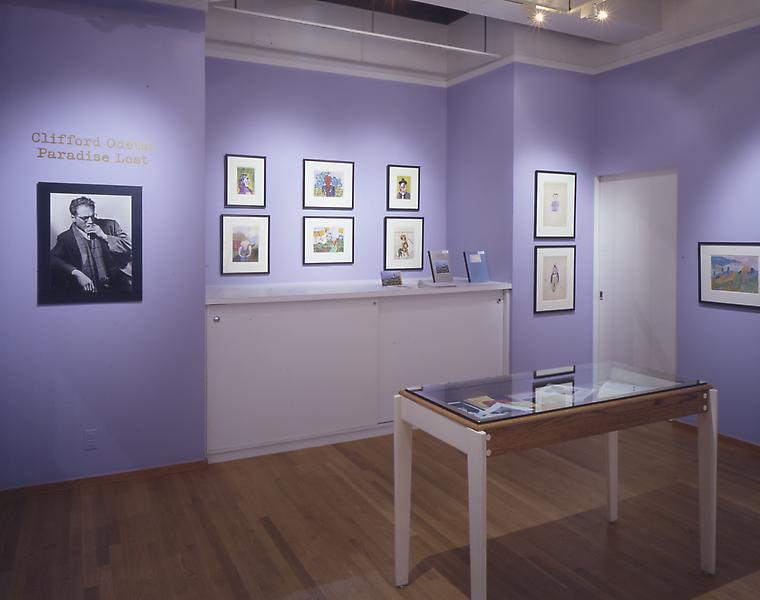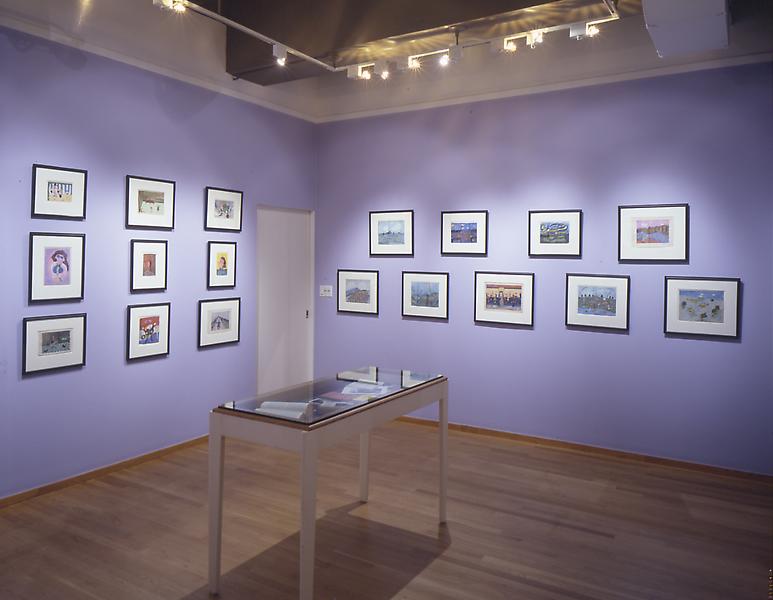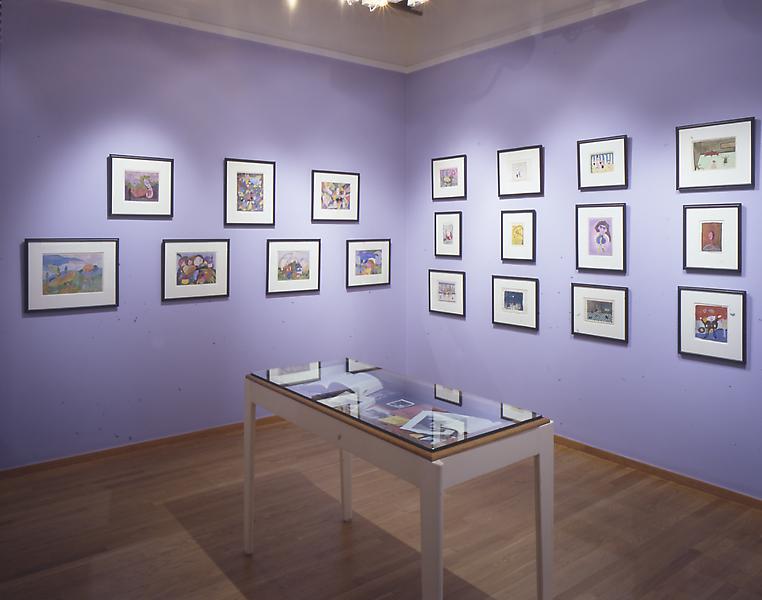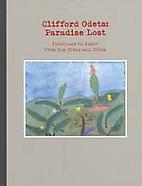One is born with talent or with genius, but one makes himself an artist. Nothing is more difficult than this process of becoming an artist. For no matter how profound the instincts of the young artist, society and American folk ways are a strong befuddling drink: the creative road is strewn with wrecks, a veritable junk yard of old rusted bodies
-Clifford Odets, 1940
Michael Rosenfeld Gallery is pleased to present its second solo exhibition featuring paintings by Clifford Odets (1906-1963). Known as a legendary cultural figure for his significant contributions to the American theater, Odets produced a remarkable body of paintings on paper from 1945 to 1956. Inspired by modern masters like Picasso, Matisse, Magritte and Klee – artists whom he admired and collected – Odets created magical scenes on sheets of writing paper. Odets worked at night while suffering from insomnia and writer’s block, and his paintings reveal his complex psyche.
The exhibition is titled after Odets’ successful 1936 play, Paradise Lost, and his painting of the same name, which is the only visual work he created that shares a title with one of his dramatic works. The exhibition will include approximately forty paintings on paper that are colorful, anecdotal, disturbing, sexually charged, and humorous. His portraits expose a “punitive parent,” a “low comic,” and “the hermit” while fantasy landscapes capture both urban and rural America.




